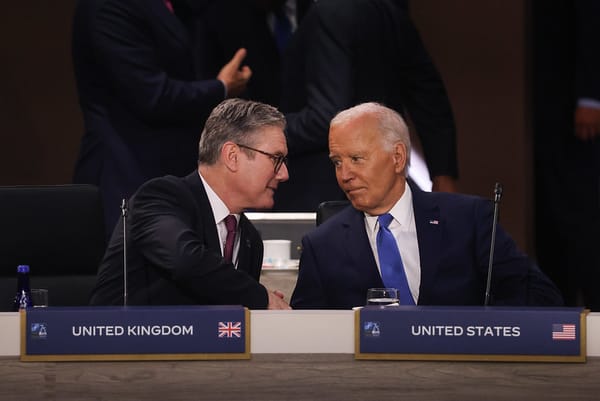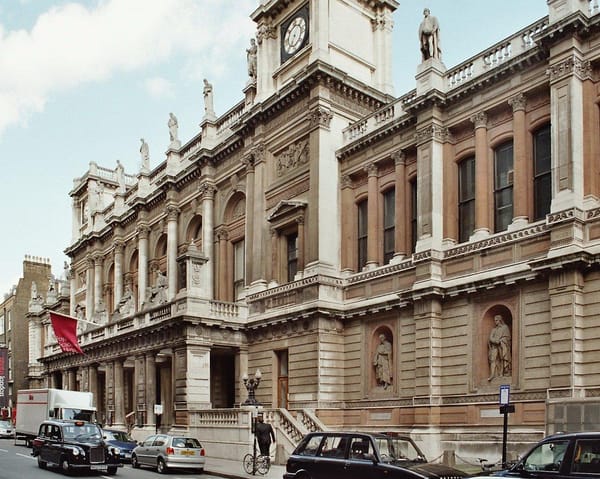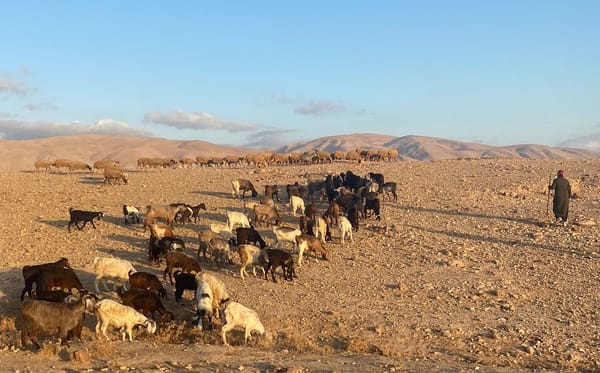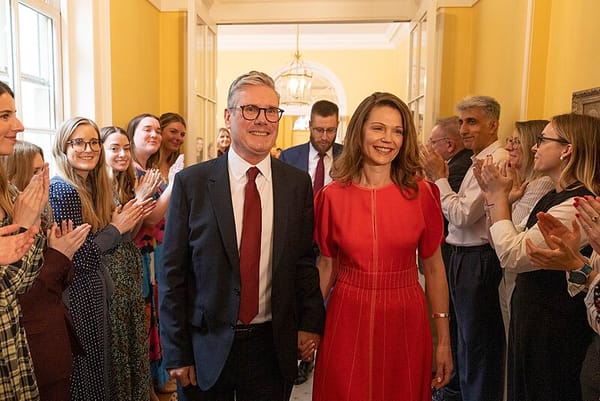We must opt out of the Board of Deputies
The “democratic and representative body” of the UK’s Jewish community does not speak for me, and thousands of others
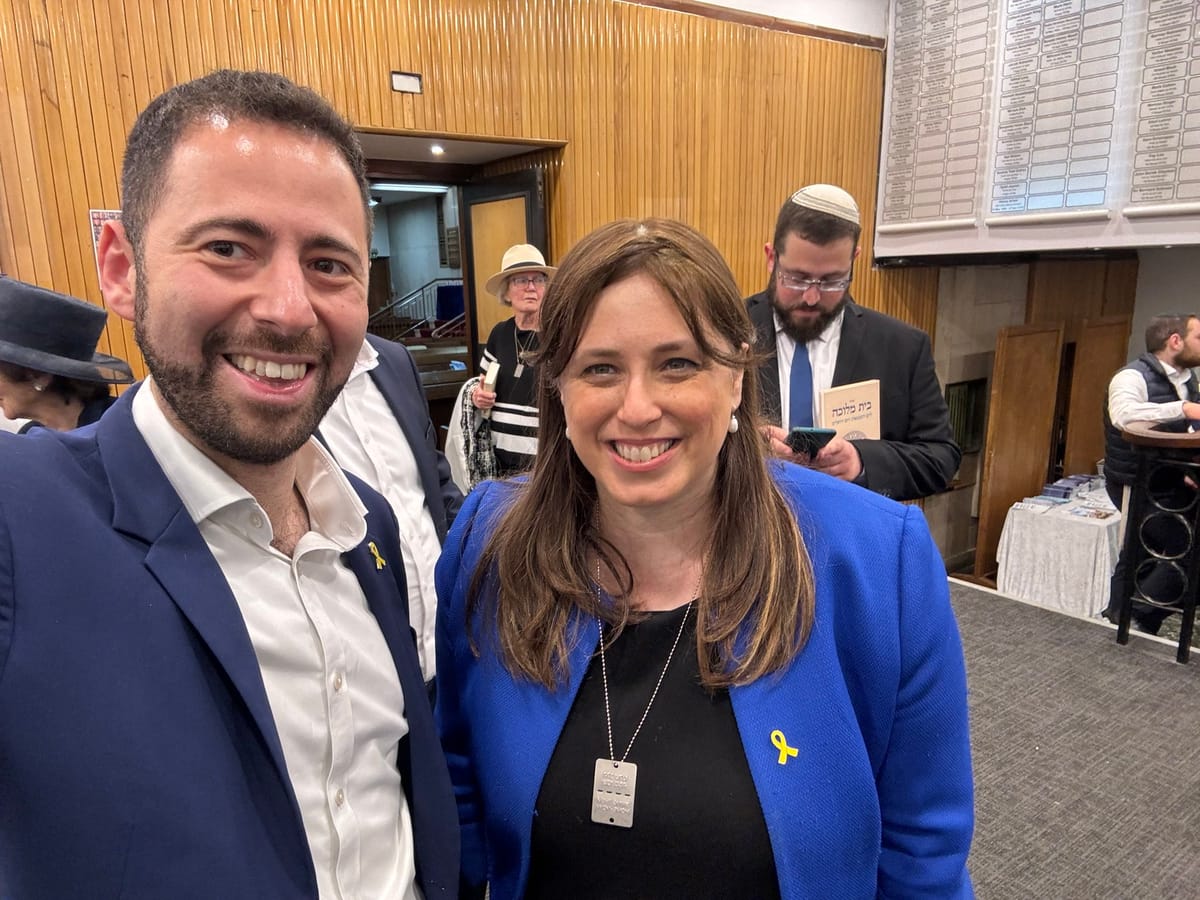
A banner declaring "Standing with Israel" decorates the website of the Board of Deputies of British Jews, the 264-year-old organisation which claims to be the voice and advocate for the UK’s Jewish community.
But how can I possibly “stand” with Israel at this time? Like many members of Na’amod, a movement of Jews in the UK seeking to end our community’s support for Israel’s occupation and apartheid, I was brought up Zionist. Throughout my life, I have spent substantial periods of time in Israel. But I cannot stand with Israel’s ongoing campaign in Gaza, nor with its decades-long dispossession and oppression of Palestinians. That is why I am supporting Na’amod’s latest campaign, which calls on British Jews to stop making contributions to the board.
Many synagogue members are automatically opted in to pay “communal contributions” to the board as part of their synagogue membership fees. Na’amod is calling on Jewish community members to write to their synagogues and, explaining their reasons, opt out of those contributions. In our numbers, we hope to exert real pressure on the board to end its support for Israel’s actions in Gaza and across the occupied West Bank.
What does it actually mean for the board to “stand with Israel”? Last week, the board issued a statement opposing the international criminal court (ICC) prosecutor Karim Khan’s applications for arrest warrants for both Hamas and Israeli leaders. The board deflected the grave charges by claiming there cannot be any moral equivalence between Hamas and Israel and asserting that the ICC lacks the jurisdiction to seek these warrants – despite the ICC establishing this remit in 2021. Both these claims obscure the most outrageous aspect of the board’s position: denying equality before the law to Palestinian victims.
This denial can be seen as part of an established pattern. In January, the board simply denied the ICJ’s statement that Palestinians’ rights to be protected from genocide may be at risk, undermining one of the principal institutions of the postwar international order. Back in 2022, the board described Amnesty International’s finding that Israel is committing the crime of apartheid as a biased “slur”, before denouncing further findings of apartheid by the UN Special Rapporteur as antisemitic. This came as no surprise; the board has been a vociferous proponent of the International Holocaust Remembrance Alliance’s (IHRA) definition of antisemitism, which has been called confusing and divisive, in part because it inhibits legitimate criticism of Israel and its policies.
It is my sincere hope that the ICC warrants – carrying charges of wilful killing, cruel treatment and the use of starvation as a weapon of war – are a wake-up call for those not yet convinced of the urgency of a ceasefire. The board has denounced calls for a ceasefire as “irresponsible”, and has been advocating for a review of the Public Order Act that would facilitate tighter policing of pro-ceasefire marches.
With tens of thousands of Palestinians killed, a large proportion of buildings and infrastructure in Gaza destroyed or damaged, and over 75% of the population displaced, I’m shocked when I hear opposition to a ceasefire, let alone when I’m deemed to be represented by that opposition. The board is quick to characterise itself as the democratic and representative body for UK Jews. But the Jewish community comprises many, and opposing, views; the board’s staunch opposition to a ceasefire erases many of us in the community.
The board has concluded that “this conflict started on 7th October”. Yet Gaza has been under a land, air and sea blockade for 17 years, which has strangled the economy and deprived civilians of their freedoms and dignity. The West Bank and East Jerusalem have been under a military occupation for 57 years. The 7 October attacks were horrific and caused profound grief and trauma across Israel. But we cannot understand how we got here by ignoring the systemic violence Palestinians have faced for decades. Rather than confronting this reality, the board chose to endorse Israeli President Herzog’s wholly racist view of a “battle between barbarity and civilisation”.
The board’s silence regarding Palestinian suffering is deafening. I’ve scoured the board’s news summaries and found not a single reference to it. In the weeks leading up to Passover, the board launched their “Seder Seat for a Hostage” campaign. It’s a powerful idea, which I support. But there was no campaign to keep a seat free for the thousands of Palestinians held in Israeli prisons for years, often without trial, since their teens. Are they not also hostages?
I cannot fault the board – which in its day campaigned against the Aliens Act of 1905, and once adopted non-Zionist positions – on every issue. They rightly opposed Israel’s 2018 Nation State Law, which confirmed that only Jewish people have the right to self-determination in Israel, relegated Arabic from an official to a “special status” language, and established Jewish settlement as a national value. However, the board failed to recognise the reality that the law had sought merely to formalise. In 2020, the board issued a statement claiming to support a two-state solution; and yet, in the very same statement, refused to condemn annexation of major settlement blocs in the West Bank. Indeed it has continued to play a key role in advancing the anti-boycott bill, which prohibits public bodies from boycotting products from illegal settlements.
Ultimately, the board’s support for a two-state solution will remain hollow as long as it fails to reckon with the opening sentence of Likud’s original 1977 party platform: “between the Sea and the [River] Jordan there will only be Israeli sovereignty.” In January, Israeli prime minister Benjamin Netanyahu reaffirmed that he “will not compromise on full Israeli security control over all the territory west of Jordan – and this is contrary to a Palestinian state.” The board continues to platform Tzipi Hotovely, Israeli ambassador to the UK, who last December said "absolutely no" to a Palestinian state, and has attacked the board for its professed support for it. Na’amod opposed hosting Hotovely in 2020 and 2021 and maintains that position.
So no, the board does not speak for me. At the fortnightly marches in central London, the thousand-strong Jewish Bloc are critical of Israel. At a recent march, I ran into a Jewish parent from our sons’ school. At Na’amod’s Rally for Rafah I ran into an elderly couple from our street, who had brought the rest of their family along too. I frequently discover more Jews who share the full depth of my horror and grief, and who demand a just and equal future for all in the region. Despite what the board seems to believe, Jewish opposition to Israel’s relentless siege on Gaza is increasingly commonplace: according to a recent report by the Institute for Jewish Policy Research (JPR), 37% of British Jews do not identify as Zionist, with a slightly higher figure for younger age groups. Presumably, the board doesn’t speak for them either.
Does the board really have the chutzpah to imagine that it represents all Jews? Made up of “deputies” who represent affiliated organisations (mostly synagogues), those deputies in turn vote for five honorary officers of the board. The JPR report states that 57% of British Jews belong to a synagogue. And many synagogues are not even affiliated with the board. This suggests that most Jews have no say in the positions that the board takes – on Israel, or indeed on any issue. How many members of such organisations actually vote for their deputies is anyone’s guess: I asked the board for voting figures; they either don’t have or won’t provide them. It appears Joseph Finlay ran into the same hurdles when writing on the board’s democratic deficit back in 2015. Moreover, I don’t recall ever being asked, either by the board or by my own synagogue, about any matter relating to the election of deputies. They certainly cannot claim to speak for me.▼
If the Board of Deputies doesn’t speak for you, write to your synagogue and see Na’amod’s Board of Deputies Doesn’t Speak for Me campaign.
Raphael Prais is a lawyer from Birmingham based in London.

